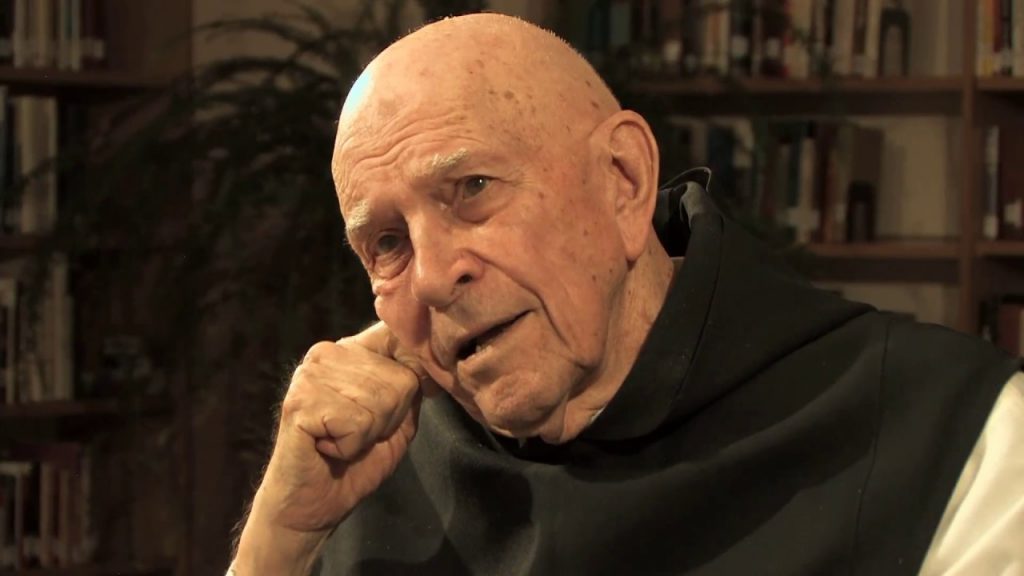The Reverend Thomas Keating, the Catholic priest who spent years working on the devotion of centering prayer, has died at the age of 95 in the monastery where he once served as abbot.
The New York Times outlines Keating’s life and career:
The arc of his life took Father Keating from riches to rags and back to riches again, Mr. Jones said in a telephone interview: He was born into affluence and privilege in Manhattan, walked away from it all when he entered an austere monastic community in Rhode Island, and was rewarded with spiritual riches.
Father Keating played a major role in popularizing what is now known as centering prayer, a method of silent prayer that allows one to rest in the presence of God. Over the years, his thoughts crystallized into what friends said became one of his favorite sayings: “Silence is God’s first language. Everything else is a poor translation.”
He entered Yale and later transferred to Fordham University, then to seminary, and was ordained in 1949, choosing the name Thomas because of his admiration for St. Thomas Aquinas, disconnecting with family while in silence for a number of years, founding St. Benedict’s monastery in Colorado and beginning to study centering prayer:
In 1971, after the Second Vatican Council, at which Pope Paul VI encouraged priests and religious scholars to renew the Christian contemplative tradition, Father Keating was invited to Rome. This led him, along with William Meninger and Basil Pennington, to develop the practice of centering prayer.
But his enthusiasm for this approach led to tensions within the abbey, and a vote on whether he should remain as abbot was evenly split. He decided he did not want to remain in a house so divided and moved back to Snowmass.
It was a liberating move for him. He began organizing conferences with representatives of other religions, including the Dalai Lama, imams and rabbis.
A funeral mass will take place on November 3 at St. Joseph’s Abbey in Massachusetts, where Keating served as abbott and died on October 25, according to Crux.
“Human nature has a dimension that requires silence,” Keating added. “The tendency had been to put people interested in the contemplative life in a convent or monastery to protect them from us – or us from them,” he joked at a conference in Omaha. “Vatican II released a lot of desire and willingness to engage in contemplative prayer and it both deserves and needs to be ministered to.”
In a homily at a 2000 Mass for the installation of Trappist Father Basil Pennington, another centering prayer proponent, at a monastery in Georgia, Keating reflected on the faith and suffering of Mary and Joseph. He said God’s “relentless movement” shattered the vision Mary and Joseph had for their lives, but called such movement “the path of transformation … the goal of the Christian life.”
Keating also was a prolific author. The Contemplative Outreach website has a page listing 28 books – what it said constituted “most of” his published works. His titles included Awakenings and Manifesting God, and he co-wrote Finding Grace at the Center: The Beginning of Centering Prayer.
The National Catholic Review excerpted a statement from Contemplative Outreach, which Keating co-founded, including plans for a vigil:
“He modeled for us the incredible riches and humility borne of a divine relationship that is not only possible but is already the fact in every human being,” the statement said. “Such was his teaching, such was his life. He now shines his light from the heights and the depths of the heart of the Trinity.”
“Details will be forthcoming for a 24-hour, worldwide prayer vigil,” the release added.
Image from the Contemplative Outreach YouTube channel

